Last Updated on 8 March 2025 by bestallinclusiveforfamilies.com
Introduction
Vacations are a time for relaxation, exploration, and indulgence, often at destinations that promise endless culinary delights, like all-inclusive resorts. However, amidst the excitement and array of dining options, there lurks the potential for food poisoning, a common disruptor of holiday joy. Food poisoning occurs when food contaminated with harmful bacteria, viruses, parasites, or toxins is consumed. It can swiftly transform a dream vacation into a distressing ordeal, marked by symptoms such as nausea, vomiting, diarrhea, and abdominal pain. In this guide you will discover essential tips on how to avoid food poisoning at all-inclusive resorts, ensuring a safe and enjoyable vacation free from health concerns.
The allure of all-inclusive resorts, with their promise of unlimited meals and beverages, can sometimes obscure the critical need for vigilance regarding food and drink safety. These resorts prepare vast quantities of food daily to cater to the diverse tastes of their guests, increasing the risk of foodborne illnesses if strict food safety practices are not followed. The impact of food poisoning on a vacation can be profound, ranging from mild discomfort to severe illness that requires medical attention, thereby curtailing the enjoyment and activities planned for the trip.
Understanding food and drink considerations at all-inclusive resorts is paramount for travelers seeking to protect their health. Being informed about the common causes of food poisoning, identifying potentially risky foods and beverages, and taking preventative measures can significantly reduce the risk of falling ill. This knowledge empowers vacationers to make safer dining choices, ensuring that their holiday remains memorable for all the right reasons.
As such, this guide aims to equip travelers with the essential insights and strategies needed to navigate the culinary landscape of all-inclusive resorts safely, allowing them to fully enjoy their vacation without the shadow of food poisoning looming over their experience.
Understanding Food Poisoning

Food poisoning, a common and often distressing condition, occurs when someone consumes food or drinks contaminated with pathogens such as bacteria, viruses, parasites, or toxins. The primary culprits include organisms like Salmonella, E. coli, Norovirus, and Listeria, which can contaminate food at any point during its production, processing, or serving. Causes of contamination might range from improper food handling, and inadequate cooking, to unsanitary storage conditions.
Causes of Food Poisoning
The journey from farm to table involves numerous steps, each with the potential for contamination. Food can become contaminated through:
- Improper Cooking and Storage: Failing to cook food to the right temperature or store it at the correct temperature can allow harmful pathogens to thrive.
- Cross-Contamination: This occurs when bacteria or other microorganisms are transferred from one substance or object to another, often via cutting boards, utensils, or even hands.
- Contaminated Water and Raw Materials: Using water contaminated with bacteria to wash, irrigate, or incorporate into food products can introduce pathogens. Similarly, raw materials, especially meats and produce, can carry bacteria from their environment.
- Poor Hygiene: Food handlers who do not wash their hands, or who work while sick, can spread bacteria, viruses, and parasites to food.
Symptoms of Food Poisoning
Symptoms can vary depending on the organism responsible but commonly include:
- Gastrointestinal Distress: Nausea, vomiting, diarrhea, and stomach cramps are the most common symptoms, reflecting the body’s attempt to rid itself of the offending pathogens.
- Fever and Chills: Many foodborne illnesses can cause fever, as the body mounts an immune response to the infection.
- Dehydration: Due to vomiting and diarrhea, dehydration is a significant risk, especially in vulnerable populations such as the elderly, infants, and those with weakened immune systems.
Symptoms can appear within hours of consuming contaminated food or even days later, complicating the identification of the source of contamination.
Risks Associated with Food Poisoning
While most people recover from food poisoning without long-term effects, certain individuals may face more severe consequences. Young children, pregnant women, the elderly, and those with compromised immune systems are at higher risk of severe illness and complications. In some cases, foodborne pathogens can cause acute conditions such as kidney failure, chronic arthritis, brain and nerve damage, or even death.
Understanding the causes and symptoms of food poisoning is crucial for prevention and prompt treatment. Recognizing the risks associated with foodborne illnesses can motivate individuals and food service providers to adopt safer food handling and preparation practices, ultimately reducing the incidence of food poisoning.
Common Food and Drink Hazards at Resorts
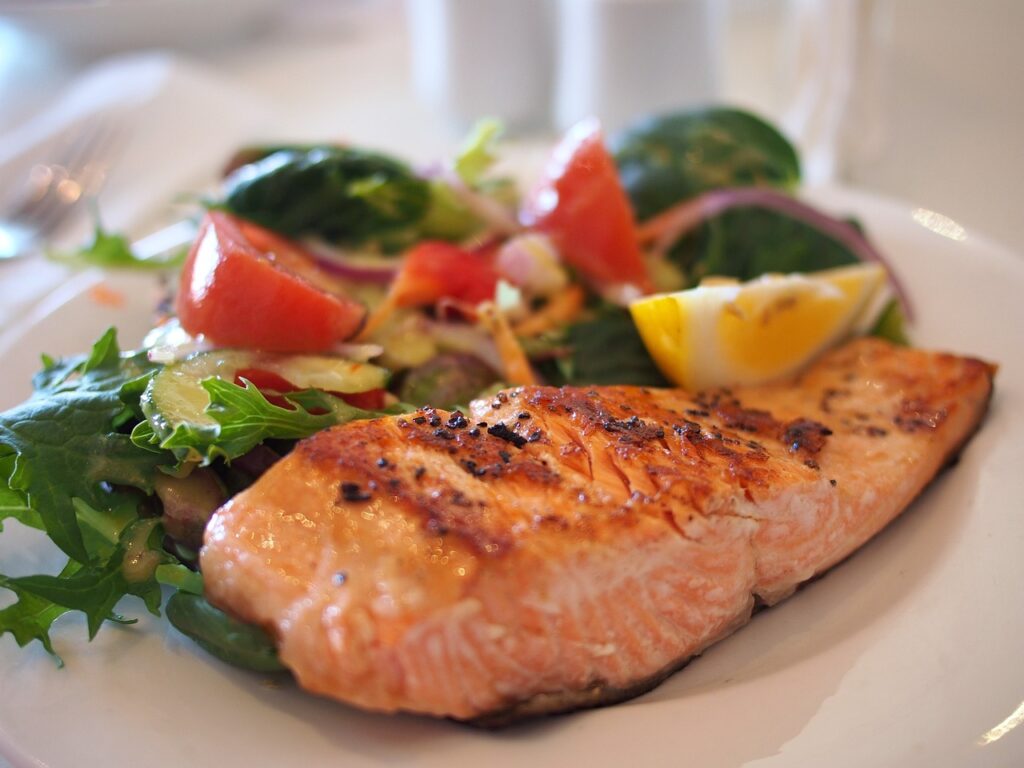
All-inclusive resorts are renowned for their lavish buffets and a never-ending supply of drinks, offering the quintessence of vacation indulgence. However, beneath the surface of these tantalizing spreads and exotic cocktails, there lie potential risks that can quickly turn a holiday into a health hazard.
Food and drink hazards at these resorts stem from various sources, such as contaminated water, unpasteurized dairy products, and improperly handled food. These risks, compounded by the high volume and rapid turnover of meals, raise the chances of food safety standards being compromised, often culminating in foodborne illness outbreaks.
Contaminated Water
One of the most prevalent hazards in any resort, especially those located in tropical or developing regions, is contaminated water. The water may be unsafe due to bacteria, viruses, parasites, or chemical pollutants, which can originate from a variety of sources including poor sanitation systems, agricultural runoff, or inadequate water treatment facilities. Ice cubes, fresh salads rinsed in tap water, and fruits that require washing are typical vectors for contaminated water to enter a vacationer’s system. Even brushing one’s teeth with tap water can pose a risk in some areas.
Unpasteurized Dairy Products
Another concern is the consumption of unpasteurized dairy products, which can host pathogens like Salmonella, E. coli, and Listeria. Unpasteurized dairy can be a hidden hazard in creamy desserts, sauces, and even in the milk used for coffee and tea. These products are especially dangerous for pregnant women, young children, the elderly, and those with compromised immune systems. Since pasteurization is not a universal practice, it’s vital to verify whether dairy products at a resort have undergone this critical safety process.
Improperly Handled Food
Improper food handling by staff can lead to cross-contamination, where harmful microbes are transferred from one food item to another. This is particularly risky in buffet settings where utensils are shared among different food items, or where food is left unrefrigerated for extended periods, allowing bacteria to proliferate. Additionally, food handlers who do not follow proper hygiene practices, such as washing hands or wearing gloves, can unintentionally spread contaminants.
High Turnover of Meals
The allure of all-inclusive resorts often lies in their ability to offer various dishes at all hours of the day. However, this very feature can be a double-edged sword. The high turnover of meals, with dishes being rapidly consumed and replenished, sometimes leads to lapses in food safety protocols. Cooking in bulk, if not managed carefully, can result in undercooked food, while time constraints may prevent proper storage and temperature control, creating a breeding ground for bacteria.
Outbreaks of Foodborne Illnesses
The culmination of these hazards can unfortunately lead to outbreaks of foodborne illnesses, which have been documented at various resorts around the world. Pathogens such as norovirus, which is highly contagious and can spread quickly through contaminated food, water, and surfaces, are common culprits. Symptoms can include vomiting, diarrhea, and stomach cramps, putting a significant damper on holiday cheer.
While all-inclusive resorts offer the promise of a carefree and enjoyable dining experience, it is crucial for guests to remain vigilant about potential food and drink hazards. Being informed about the risks of contaminated water, unpasteurized dairy products, improperly handled food, and the implications of high meal turnover can help travelers make safer choices. By taking precautions and staying informed, vacationers can significantly reduce the risk of foodborne illnesses and ensure their holiday memories are filled with joy rather than distress.
Preventive Measures
How to Avoid Food Poisoning at All-Inclusive Resorts
While vacations should be carefree and filled with enjoyment, taking a proactive stance on health can ensure that food poisoning doesn’t disrupt your much-deserved break. Implementing preventive measures is key to safeguarding your well-being while sampling the culinary delights of an all-inclusive resort. Here are some simple yet effective strategies to help you steer clear of food-related illnesses.
Hand Hygiene
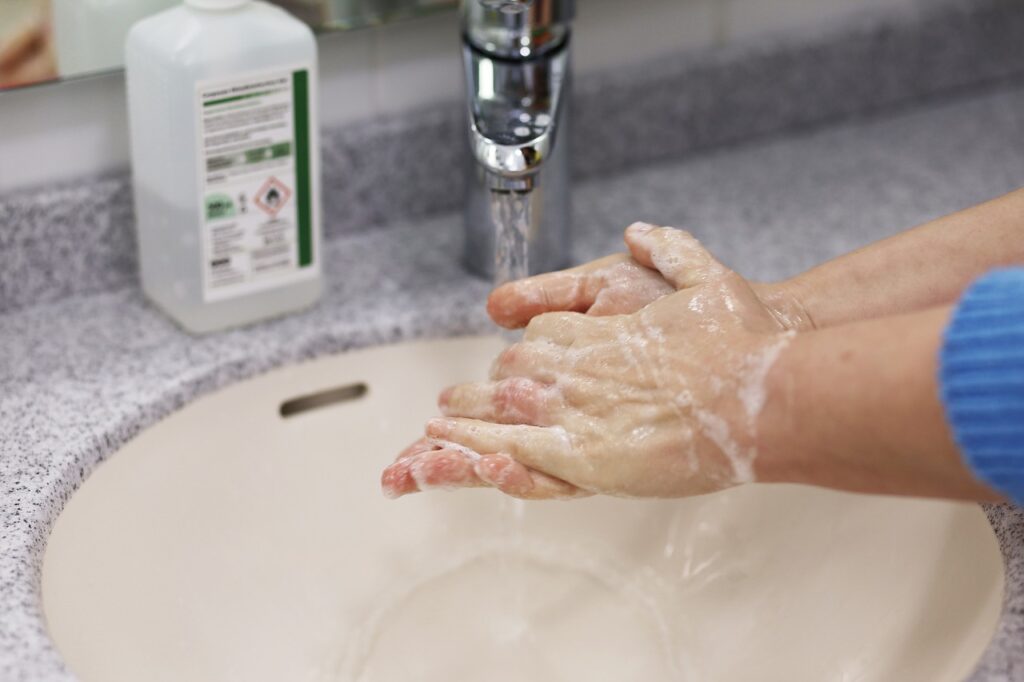
The cornerstone of preventing food poisoning is proper hand hygiene. Our hands are the primary carriers of germs, as they come into contact with numerous surfaces that may be contaminated. It is essential to wash your hands thoroughly with soap and water for at least 20 seconds before eating. This practice should be non-negotiable before meals, after using the restroom, and after any activity that could soil your hands, such as handling money, touching common surfaces, or playing sports.
Wise Choices in Dining Locations
Exercise caution when choosing where to eat. While the buffet at an all-inclusive resort may be tempting with its variety, not all stations may adhere to the same level of hygiene. Observe the cleanliness of the food areas and the behavior of the staff. Are they using gloves? Is there a protective shield over the food? These are signs of a well-maintained buffet. Also, it’s worth considering dining during less busy times when the food has not been exposed to the elements and multiple guests for an extended period.
Selecting Safer Foods
Some foods are inherently riskier than others when it comes to the potential for food poisoning. Raw or undercooked meats, seafood, eggs, and unpasteurized dairy are common culprits. To reduce your risk, opt for thoroughly cooked foods and pasteurized dairy products. Be cautious with raw fruits and vegetables as well; ensure they have been washed in safe water or peel them yourself. It’s also wise to avoid foods that have been sitting out for an unknown amount of time, especially in warm environments.
Being Observant
Pay attention to how food is presented. Foods that are kept on ice or under food warmers are less likely to harbor harmful bacteria. Check that hot foods are steaming and cold foods are chilled. This indicates that they have been stored at the correct temperature, minimizing bacterial growth. If a food item looks or smells odd, trust your instincts and avoid it.
Staying Hydrated Safely
Water is essential, especially in hot climates where you may be vacationing. However, contaminated water is a common source of foodborne illness. Only drink water that you know is safe – this may mean bottled water or water that has been filtered and treated appropriately. Be wary of ice cubes unless you are certain they have been made from treated water.
Consulting Reviews and Recommendations
In the age of information, reviews and recommendations are invaluable. Before choosing a resort, research its reputation regarding food safety. Look for comments from previous guests about their dining experiences and any issues they may have faced. This information can guide you in selecting a resort that prioritizes the health of its guests.
By incorporating these preventive measures into your vacation routine, you can significantly reduce the risk of food poisoning and ensure that your time away is as relaxing and enjoyable as it should be. These steps help not only in avoiding illness but also in providing peace of mind, allowing you to fully immerse yourself in the pleasures of your all-inclusive experience.
Choosing Safe Food and Drinks
When vacationing at an all-inclusive resort, the abundance of food and drink options can be both a pleasure and a potential risk. To make the most of your dining experience while safeguarding your health, it’s crucial to make informed choices about what you consume. Here are some guidelines to help you choose safe foods and drinks during your stay.
Choosing Hot Food When It’s Hot and Cold Food When It’s Cold
Ensuring food safety requires proper temperature control. Pathogens thrive in the “danger zone,” which is between 40°F (4°C) and 140°F (60°C). Therefore, hot foods should be served steaming hot, and cold foods should be kept on ice or in chilled displays to prevent bacterial growth. When at a buffet, look for steam tables for hot items and chilled stations for cold items. If a hot dish doesn’t feel adequately warm to the touch or if a cold dish isn’t cool, it’s safer to choose something else.
Freshness is Key
The fresher the food, the less time there has been for pathogens to develop. Foods cooked on-site and served immediately are often the safest options. Many resorts offer live cooking stations where dishes are prepared right in front of you. Not only does this provide an element of entertainment, but it also ensures that your meal is fresh from the grill or stove. Similarly, drinks should be mixed or poured upon order rather than pre-made in large batches where they can sit out for extended periods.
Cooked-Over Raw
While raw fruits and vegetables are a staple of a healthy diet, in the context of a resort, it’s safer to opt for cooked foods. Cooking at high temperatures kills most bacteria and parasites. If you do choose raw items, ensure they are peelable, and you remove the skin yourself, such as bananas or oranges. For salads, verify that they have been washed in safe water or stick to those you can dress and mix yourself, minimizing the risk of contamination from others.
Watch Food Handling Practices
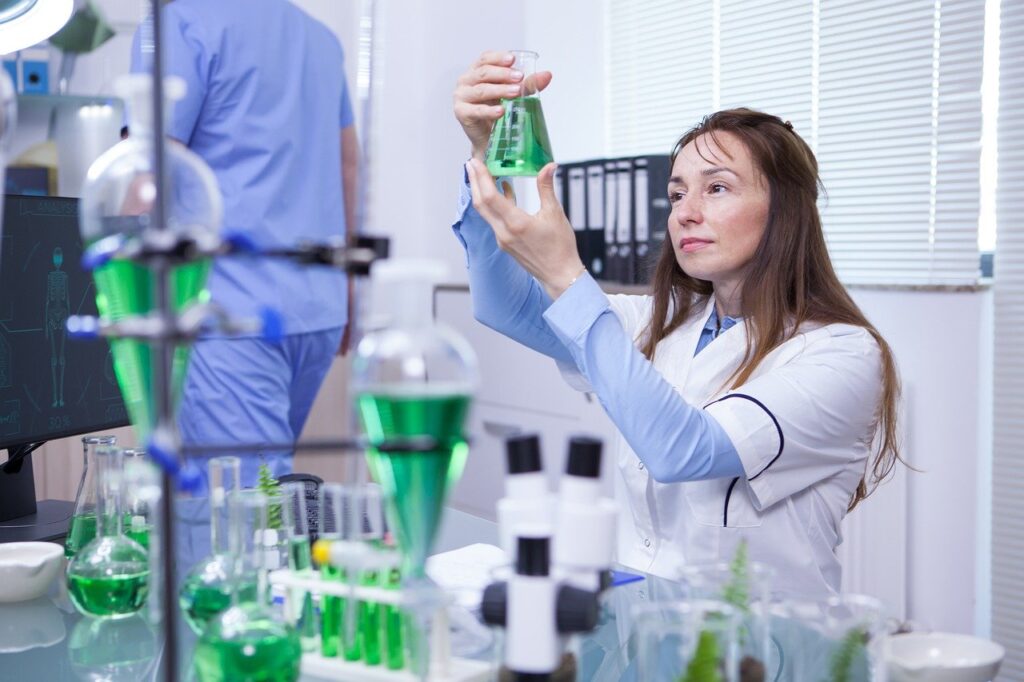
Observe the resort staff’s food handling practices. Staff should be using gloves or utensils to handle food, not bare hands. This is particularly important for items that won’t be cooked again, like bread or pastries. If you notice poor practices, such as the same gloves being used to handle different foods or utensils being shared between raw and cooked items, it’s wise to avoid those foods.
Safe Drinking Water
Water quality is not consistent across all travel destinations. Resorts should provide safe, potable water, but it’s a good practice to ask if the water is filtered or bottled. When it comes to ice, verify that it’s made from filtered or bottled water to avoid any potential contaminants.
Alcohol with Caution
When indulging in alcoholic beverages, be wary of drinks with ingredients like unpasteurized juices or fruits that may have been washed in unsafe water. Stick to bottled or canned drinks when possible, and when opting for cocktails, choose a reputable bar within the resort where hygiene standards are visibly upheld.
Selecting safe food and drinks at a resort need not be a daunting task. By adhering to these guidelines, you can enjoy a diverse array of culinary offerings without compromising on safety. Remember, the goal is to relish your all-inclusive experience with peace of mind, knowing that you are making choices that support your well-being.
Packing Essential Items
Preparation is key when it comes to avoiding food poisoning, especially while staying at an all-inclusive resort. Packing a well-thought-out travel health kit can mean the difference between a trip full of pleasant memories and one marred by illness. Here’s a rundown of essential items to consider for your health and safety arsenal.
Hand Sanitizer
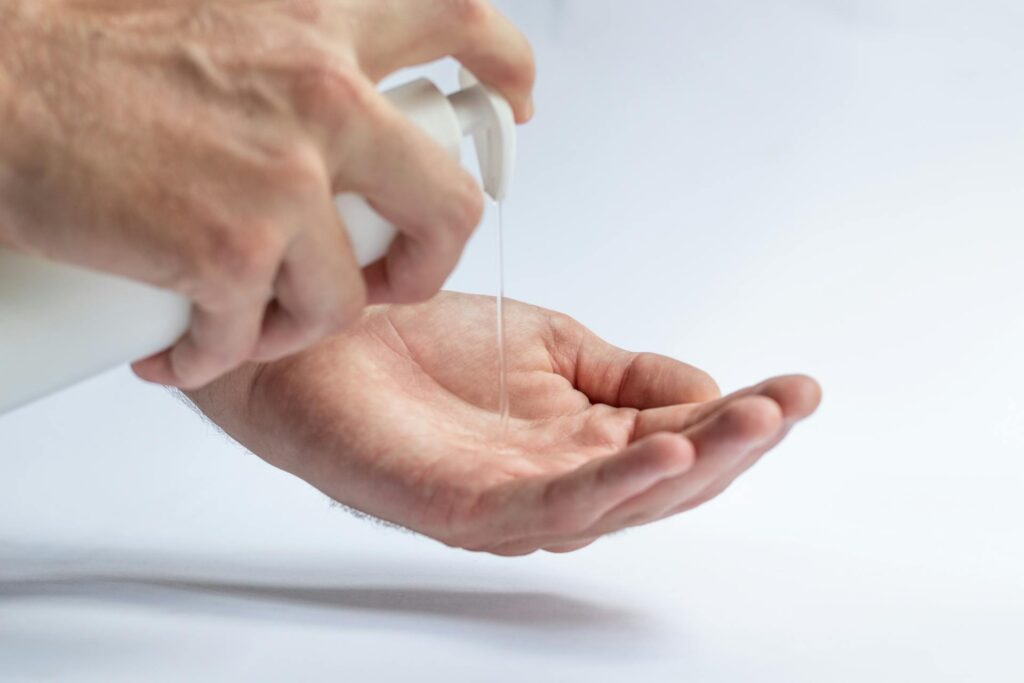
Good hygiene starts with clean hands, and sometimes soap and water may not be readily available. Carrying hand sanitizer with at least 60% alcohol content is an effective way to kill germs and bacteria that you may pick up from surfaces or by shaking hands. A small bottle can be conveniently carried in your pocket or daypack for easy access before meals or after touching communal surfaces.
Antidiarrheal Medications
Even with the best precautions, the unexpected can happen. Packing antidiarrheal medication can help manage the symptoms of food poisoning should it occur. Medications such as loperamide (Imodium) or bismuth subsalicylate (Pepto-Bismol) can provide relief from cramps and diarrhea, helping you feel better faster. However, it’s important to note that while these medications treat the symptoms, they don’t address the underlying cause, so it’s best to consult with a healthcare professional if symptoms persist.
Water Purifier
A reliable water purifier is a travel necessity. This could be in the form of purifying tablets, a UV water purifier, or a filtration system. In places where the tap water quality is questionable, a water purifier can remove contaminants such as bacteria, viruses, and protozoa, making the water safe to drink. This is especially useful for travelers venturing outside the resort or on excursions where bottled water may not be available.
Personal Water Bottles with Built-In Filters
Hydration is essential, but safe hydration is non-negotiable. Personal water bottles with built-in filters offer a convenient and eco-friendly solution. They are designed to filter out bacteria, parasites, and even chemicals, from tap water, making it safe to drink. This not only ensures that you have access to clean water at all times but also reduces plastic waste from single-use water bottles.
Digestive Aids
Probiotics and digestive enzymes can be a boon on your travels. Probiotics help maintain a healthy balance of gut bacteria, which can be beneficial in preventing and treating diarrhea. Digestive enzymes, on the other hand, can aid in the digestion of unfamiliar foods and prevent discomfort.
Rehydration Solutions
In the unfortunate event of food poisoning, staying hydrated is critical. Oral rehydration solutions, which contain a precise blend of salts and sugars, can effectively rehydrate the body and replace lost electrolytes. Packets of these solutions take up minimal space and can be a lifesaver if dehydration sets in.
Food Safety Supplies
For those who want to take extra precautions, items such as disposable gloves, a small food thermometer, or even your own eating utensils can be included in your packing list. These supplies can help you ensure that the food you consume is safe and that you have control over your food-handling environment.
The adage “better safe than sorry” holds true when it comes to preventing food poisoning at all-inclusive resorts. A well-packed travel health kit, equipped with items like hand sanitizer, antidiarrheal medication, a water purifier, and a personal water bottle with a filter, can significantly minimize the risk of illness. By prioritizing these essential items, you can focus on enjoying your vacation, confident in the knowledge that you are prepared for a healthy and safe trip.
The Role of Resorts in Food Safety
All-inclusive resorts are not just holiday destinations; they are custodians of their guests’ health and well-being, especially when it comes to food safety. The responsibility of preventing foodborne illnesses at these establishments is immense, given the diversity of their clientele and the volume of food prepared daily. Resorts can play a pivotal role in food safety through several proactive measures.
Ensuring the Use of Pasteurized Dairy Products
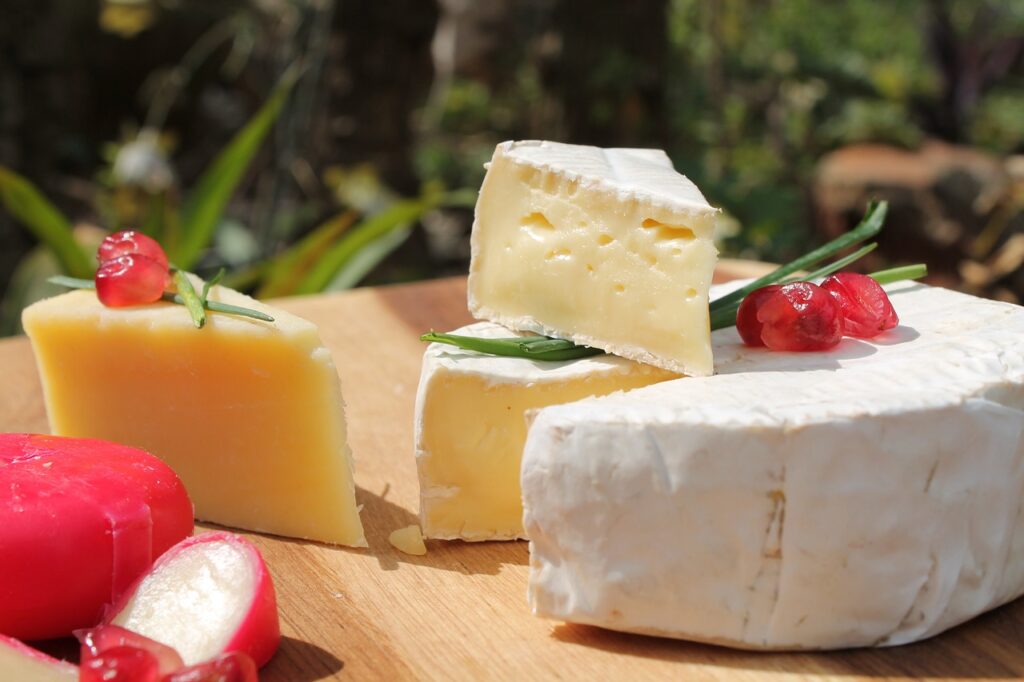
Resorts should prioritize the use of pasteurized dairy products. Pasteurization involves heating milk to a specific temperature for a set period to eliminate harmful bacteria. By using pasteurized dairy, resorts can significantly reduce the risk of pathogens like Salmonella, E. coli, and Listeria, which are commonly associated with raw milk and dairy products. Resorts must source their dairy supplies from reputable providers who adhere to safe pasteurization practices.
Provision of Clean Drinking Water
Access to clean drinking water is a fundamental requirement for health and hygiene. Resorts must ensure that the water provided to guests, whether for drinking, ice-making, or cooking, is free from contaminants. This may involve installing advanced filtration systems, using water purification methods, or providing bottled water. By securing the water supply, resorts can prevent a range of waterborne diseases that could ruin a guest’s vacation.
Educating Guests on Food Safety
Education is a powerful tool in preventing food poisoning. Resorts can take the initiative to inform guests about the principles of food safety. This could be done through welcome booklets, signs at buffet stations, or during the check-in process. Information on the risks associated with consuming raw or undercooked foods, the importance of hand washing, and the availability of purified water can empower guests to make safer food choices.
Regular Staff Training
Continuous education and training of the resort staff are equally critical. Every team member, from kitchen staff to servers, should be well-versed in food safety practices. Regular training sessions can ensure that staff members are up to date on the latest food handling and hygiene protocols, helping to maintain a safe dining environment for all guests.
Monitoring and Compliance
To maintain high standards of food safety, resorts must implement strict monitoring and compliance measures. This includes regular health inspections, food safety audits, and temperature checks for all cooking and refrigeration units. By keeping a diligent watch over these aspects, resorts can quickly identify and rectify any lapses in food safety.
Promoting Transparency
Transparency about food sources and preparation methods can boost guests’ confidence in the safety of the food served. Resorts that are open about their suppliers, the origin of their ingredients, and their kitchen practices help guests feel more secure about what they’re eating.
The role of all-inclusive resorts in food safety is fundamental. Through the use of pasteurized dairy, the provision of clean drinking water, educating guests, staff training, monitoring compliance, and promoting transparency, resorts can ensure that their guests enjoy not only a pleasurable but also a safe dining experience. These measures not only protect guests’ health but also enhance the resort’s reputation, showcasing their commitment to excellence in every aspect of their operation.
Case Studies and Experiences
Personal experiences and case studies of food poisoning at all-inclusive resorts serve as powerful lessons for both guests and the hospitality industry. They highlight the vulnerability of the food handling system and the importance of rigorous safety measures. Here, we will explore some real-life incidents and the preventive or reactive steps taken in response.
Case Study 1: The Outbreak at a Tropical Paradise
A luxury resort in the Caribbean faced a major norovirus outbreak, affecting over a hundred guests. Symptoms included severe stomach cramps, vomiting, and diarrhea. The incident was traced back to contaminated ice, which had been used in various beverages served throughout the resort.
Preventive Measures: In response, the resort implemented an immediate overhaul of its water filtration systems and instituted strict checks on all water sources. They also began using bottled water for ice production. Staff received additional training on hygiene practices, especially focusing on hand washing and the handling of ice and beverages.
Case Study 2: The Buffet Incident
Several guests reported food poisoning symptoms at a renowned all-inclusive resort after dining at the seafood buffet. The buffet included a variety of raw seafood options, which were improperly refrigerated.
Management Actions: The resort took swift action by removing raw seafood items from the buffet and conducting a thorough investigation into the refrigeration malfunction. Subsequently, the resort switched to cooked seafood alternatives to minimize risk and ensured that all cold dishes were maintained at safe temperatures with regular temperature logs kept as part of their food safety protocols.
Personal Experience: The Salad Mishap
A traveler shared an experience of falling ill after consuming a salad at an all-inclusive resort. The salad was part of a lunch buffet, and it was later discovered that it had been washed with tap water that was not potable.
Preventive Actions: After this incident, the resort emphasized the use of purified water for all food preparation and placed visible notices for guests about the safety of consuming raw foods. They also introduced an option for guests to request salads made-to-order, using purified water for washing ingredients.
Case Study 3: The Contaminated Dessert
A case of food poisoning was linked to a dessert at an all-inclusive resort, where the culprit was found to be a batch of contaminated cream used in the preparation.
Management Response: The resort conducted a full trace-back of the cream supply and found lapses in the cold chain management from the supplier’s end. They immediately ceased all business with the supplier and implemented stricter receiving protocols to check the temperature and quality of all perishable deliveries.
These case studies and personal experiences underscore the critical need for constant vigilance in food safety at all-inclusive resorts. Prevention strategies such as proper food handling, regular staff training, and stringent supplier standards are essential. When incidents do occur, swift management action and transparency with guests are key to managing the situation effectively. By learning from these experiences, resorts can improve their practices and prevent future occurrences, ensuring guests have a safe and enjoyable experience.
FAQs on Avoiding Food Poisoning at All-Inclusive Resorts
Is food poisoning common at all-inclusive resorts?
While not widespread, food poisoning can occur at all-inclusive resorts due to the vast quantity of food prepared and the diversity of guests’ dietary habits. However, reputable resorts implement stringent food safety practices to minimize risks.
How do you prevent food poisoning on vacation?
To prevent food poisoning, practice regular hand washing, consume freshly prepared foods, avoid raw or undercooked meats, and drink bottled or purified water. Being cautious of where and what you eat significantly reduces the risk.
What can I eat on holiday to prevent food poisoning?
Opt for foods cooked and served hot, fruits you can peel yourself, and pasteurized dairy products. Avoid raw seafood, undercooked meats, and unpeeled raw fruits and vegetables to minimize the risk of food poisoning.
What is the most effective way to prevent food poisoning?
The most effective prevention method is practicing good hygiene, such as washing hands frequently, ensuring food is cooked to safe temperatures, and consuming purified or bottled water instead of tap water.
What countries are bad for food poisoning?
Food poisoning can occur anywhere, but the risk may be higher in destinations with lower sanitation standards or different food handling practices. Researching your destination and taking precautions can help mitigate the risk.
How do you prevent traveler’s diarrhea?
Prevent traveler’s diarrhea by avoiding tap water (including ice made from tap water), eating food that is cooked and served hot, avoiding raw or undercooked foods, and using hand sanitizer when soap and water are not available.
Can I trust the water and ice at all-inclusive resorts?
While many all-inclusive resorts purify their water, it’s safest to ask about their water purification process or opt for bottled water, especially for drinking and brushing teeth. Be cautious with ice unless confirmed it’s made from purified water.
Are buffet foods safe to eat at all-inclusive resorts?
Buffet foods can be safe if the resort maintains proper temperature control and hygiene practices. Look for signs of fresh preparation and frequent replenishment. Avoid items that have been sitting out for extended periods, especially in warm weather.
How do I know if dairy products at a resort are safe to consume?
Inquire if the dairy products are pasteurized, especially in countries where pasteurization is not a standard practice. Stick to sealed, packaged dairy products when in doubt.
What should I do if I suspect food poisoning at a resort?
Report any symptoms of food poisoning to the resort’s medical facility immediately. It is important to maintain proper hydration levels and seek immediate medical attention if you experience severe symptoms. Notifying the resort allows them to address and prevent further cases.
Conclusion
In this comprehensive guide, we navigated through the critical aspects of avoiding food poisoning at all-inclusive resorts, covering everything from understanding food poisoning and its causes to implementing preventive measures and selecting safe food and drinks. We also highlighted the indispensable role of resorts in maintaining food safety and shared real-life case studies to underscore the significance of vigilance and informed decision-making.
The key takeaway from this guide is the paramount importance of being informed and proactive in taking preventive measures against food poisoning. By understanding the common food and drink hazards, such as contaminated water, unpasteurized dairy products, and improperly handled food, travelers can make safer choices that significantly reduce their risk of illness.
Practical steps such as washing hands thoroughly, choosing freshly cooked foods, staying hydrated with safe water, and packing essential items like hand sanitizer and antidiarrheal medications were emphasized as cornerstone practices for ensuring a healthy vacation experience. Moreover, the responsibility of resorts to uphold food safety standards through proper food handling, regular staff training, and ensuring the use of safe, potable water was discussed as a critical factor in preventing foodborne illnesses.
As travelers, embracing these guidelines empowers us to take control of our health and safety, allowing us to fully enjoy the luxurious experience offered by all-inclusive resorts without the looming threat of food poisoning. It’s a call to action for both vacationers and resort operators to prioritize food safety as a fundamental aspect of the travel experience. By applying these tips and maintaining a vigilant and informed approach to dining, we can all look forward to safe and enjoyable vacations, filled with delightful culinary experiences and lasting memories, free from the worries of foodborne illnesses.



